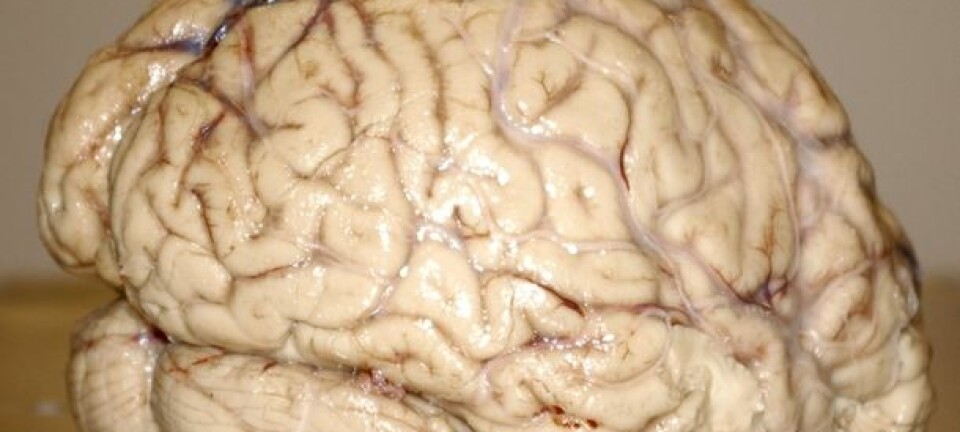
Doping hormone helps depressed remember better
The blood-doping hormone EPO can enhance the memory of depressed people. Combined with therapy it could ease depressed people’s way out of the mental illness, suggests scientist.
Scientists may have discovered an unlikely candidate for improving memory deficits that some depression patients suffer from.
In a new study, EPO (erythropoietin) has been shown to boost the memory of those battling with depression.
”EPO enhanced patient memory and at the same time they experienced an improvement in mental well-being and their quality of life,” says lead author, Kamilla Miskowiak, PhD, a psychologist and senior researcher at Psychiatric Center Copenhagen, which is part of the University of Copenhagen.
EPO protects the brain
It might seem odd to treat depressed with a drug used for doping but actually it’s not that far a fetch. Depression scientists have long toyed with the idea that EPO can counter some of the consequences of the illness.
There exists no antidepressant medicine – neither in use nor in development – that has a direct and immediate effect on the brain’s plasticity. EPO is quite unique in that sense.
Kamilla Miskowiak
“Previous studies have demonstrated how EPO has some protective properties where it stimulates the brain to create new neurons and form neural pathways,” says Miskowiak.
Research indicates that this ability to create new neurons and pathways – a phenomenon known as neurogenesis – is reduced in people suffering from depression.
Some studies even suggest that one brain region key to memory, the hippocampus, shrinks by up to 10 percent in patients suffering from prolonged depression.
And that is why a drug improving the brain’s ability to maintain itself – neuroplasticity – is worth studying further, explains Miskowiak.
If the patients’ memory is enhanced through a treatment with EPO, they might better retain what they learn during the sessions. Then we might begin to see some synergistic effects between the medicinal and the psychological treatment.
Kamilla Miskowiak
“There exists no antidepressant medicine – neither in use nor in development – that has a direct and immediate effect on the brain’s plasticity. EPO is quite unique in that sense,” she says.
Therapy can get boost from EPO
With its neuroprotective properties EPO could lead to a more efficient treatment of depression.
In addition to antidepressants, many patients are also treated with therapy. During the sessions psychologists attempt to teach patients how to break with the negative thought pattern they so often are trapped in, explains the researcher.
The problem, however, is that the therapy doesn’t work for every patient:
”Since so many patients suffer from memory deficits, they have a hard time getting anything useful from the therapy,” says Miskowiak.
She hopes EPO can change this.
”If the patients’ memory is enhanced through a treatment with EPO, they might better retain what they learn during the sessions. Then we might begin to see some synergistic effects between the medicinal and the psychological treatment.”
EPO could help ’treatment resistant’ patients
The study looked at a special type of depression patients known as ’treatment resistant’ because they cannot be treated adequately with regular antidepressants.
“The medicine can alleviate their symptoms but the depression doesn’t go away. This has a huge impact on these people’s quality of life and their daily functioning.”
Psychiatrists estimate that between 30 and 40 percent of all people suffering depression are treatment resistant.
“This is probably the group of depression patients that constitutes the biggest challenge for society and that’s why there is a real interest in finding an effective treatment,” says Miskowiak.
She is convinced that EPO might be a step towards such a treatment as long as it is combined with therapy:
“We cannot just administer antidepressants to the patients while leaving them completely alone with their thoughts. If we can both stimulate the brain function with EPO and give the patients the right therapeutic tools to fight the depressions, then I think we can go far.”
Former patients continue to suffer from memory problems
The Danish patient organisation DepressionsForeningen has witnessed an increase in the number of complaints from members suffering from poor memory.
“It is something that torments a great number of people and we [DepressionsForeningen] are becoming increasingly aware of the problem,” says Kasper Tingkær, secretariat director of the DepressionsForeningen.
This is a great problem for those who still struggle with depression, he explains:
”It makes work and daily life very difficult for them. Many experience continued difficulties with remembering even after the depression has left the body, so to speak.”
EPO would be a welcome addition
Tingkær has not heard directly from members who receive therapy that the impaired memory makes it harder for them to gain anything with the therapy. But he believes that it might play a role.
“Even though many patients are treated through therapy, we also know that it doesn’t work so well all the time. It’s not unthinkable that memory deficits could hamper the treatment – it makes sense,” says Tingkær.
He says the trick is to use as many tools as possible if we want to help patients with depression. If EPO can counter the memory deficits then it would be a welcome addition:
“The key here is that we look at all the options that are discovered and then use them effectively where they can make a difference.”
----------------------
Read the Danish version of this article at videnskab.dk
Translated by: Kristian Secher









